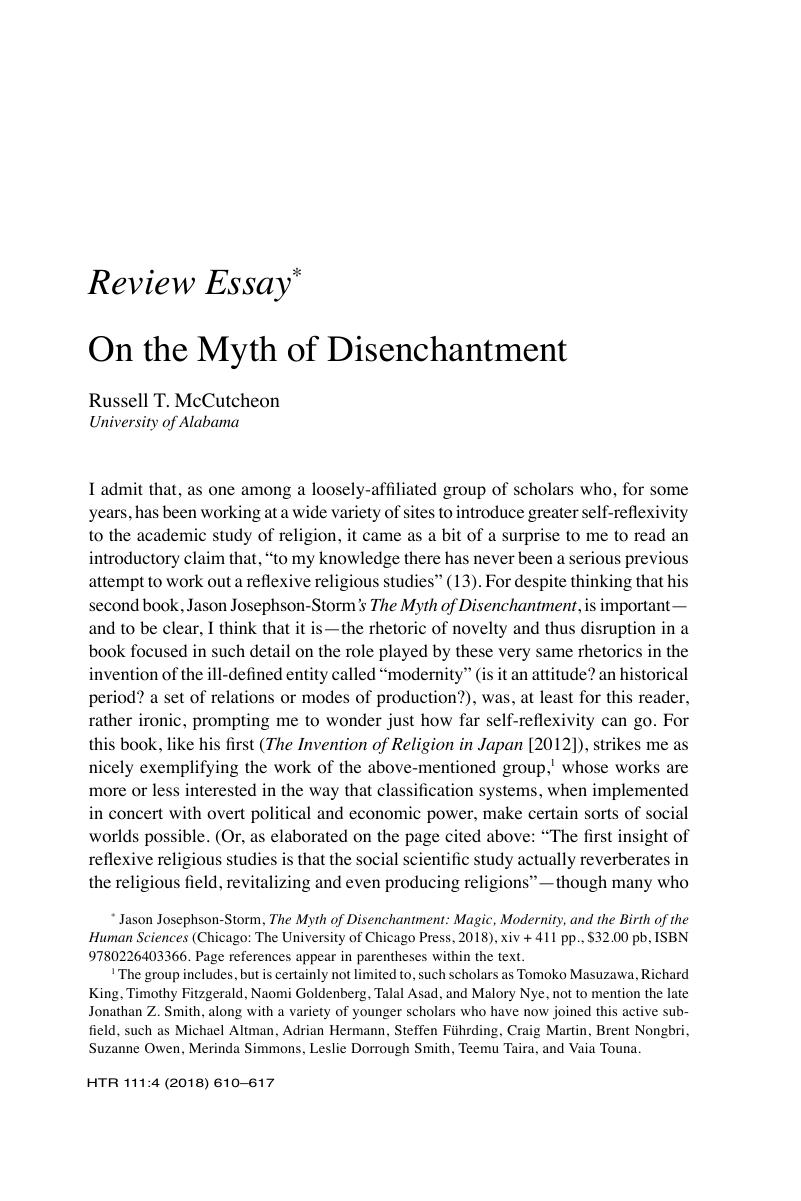Published online by Cambridge University Press: 18 December 2018

Jason Josephson-Storm, The Myth of Disenchantment: Magic, Modernity, and the Birth of the Human Sciences (Chicago: The University of Chicago Press, 2018), xiv + 411 pp., $32.00 pb, ISBN 9780226403366. Page references appear in parentheses within the text.
1 The group includes, but is certainly not limited to, such scholars as Tomoko Masuzawa, Richard King, Timothy Fitzgerald, Naomi Goldenberg, Talal Asad, and Malory Nye, not to mention the late Jonathan Z. Smith, along with a variety of younger scholars who have now joined this active sub-field, such as Michael Altman, Adrian Hermann, Steffen Führding, Craig Martin, Brent Nongbri, Suzanne Owen, Merinda Simmons, Leslie Dorrough Smith, Teemu Taira, and Vaia Touna.
2 Note: the book’s use of the term “myth” is mostly in that more polemical, and, dare I say, modern, tradition of usage.
3 A popular example of how many use the term “magical thinking” today can be found in Joan Didion’s memoir of her life after her husband and daughter died, The Year of Magical Thinking (2007). In an experience many of us have had, smelling the clothes of the deceased momentarily brought them back to life and prompted the author to let the clothes linger a little longer in the closet. Now, to identify others who, or so we would claim, mistake mere sequence or coincidence for causality makes it evident that “magical thinking” is itself a rhetorical and not a descriptive term.
4 See my new collection Fabricating Religion: Fanfare for the Common e.g. (Berlin: Walter de Gruyter, 2018)Google Scholar.